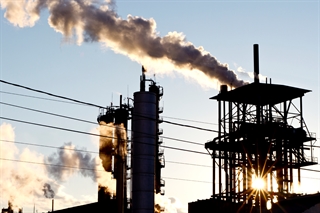
Proposed Wisconsin legislation (SB 459) would affect non-federal air pollution regulations in Wisconsin
Proposed Wisconsin legislation (SB 459) would affect non-federal air pollution regulations in Wisconsin
Authored By
Practices
A proposed bill introduced by Wisconsin state senators (Sen. Stroebel, Sen. Craig, Sen. Nass, and Sen. Kapenga) aims to greatly influence regulation of pollutants regulated only under state law (non-federal regulations) in Wisconsin.
Proposed changes
First, the proposed bill requires the Wisconsin Department of Natural Resources (DNR) to identify and repeal all administrative rules promulgated by the DNR that relate to the regulation of air pollutants not already regulated under federal law.
 Currently, the State of Wisconsin regulates air pollutants not regulated by the federal government. The proposed bill would repeal any state air pollution rules not mandated by the federal government by the end of 2018. SB 459 potentially creates the situation where reporting and enforcement requirements for many of the non-federal pollutants identified by the DNR would no longer exist.
Currently, the State of Wisconsin regulates air pollutants not regulated by the federal government. The proposed bill would repeal any state air pollution rules not mandated by the federal government by the end of 2018. SB 459 potentially creates the situation where reporting and enforcement requirements for many of the non-federal pollutants identified by the DNR would no longer exist.
One of the DNR air programs that could be adversely impacted by the proposed legislation is the Wisconsin hazardous air pollutant program. See Wis. Admin. Code Chap. 445. This program was one of the first programs in the country to regulate hazardous air pollution and was adopted before the U.S. Environmental Protection Agency (EPA) adopted its program regulating such pollutants.
Lawmakers on both sides of the aisle have expressed strong opinions on SB 459. Those in favor of the proposed bill say the non-federal regulations hamper growth and cost businesses revenue. Additionally, these lawmakers cite a 2004 state audit showing only 94 pollutants out of the nearly 300 pollutants regulated under the Wisconsin hazardous air pollution law were actually emitted in 2002. These lawmakers argue the proposed legislation would ease the regulatory burden on companies and align state authority for regulation of air pollutants with that of the EPA.
However, lawmakers who oppose the proposed bill point to a potential ripple effect whereby the bill’s passage leads to higher emissions of hazardous air pollutants, which in turn increases exposure rates, placing the public at greater risk for adverse health effects. Furthermore, lawmakers opposed to the proposed bill point to the interconnected nature of federal and state air regulatory programs. States routinely gap-fill holes in federal regulatory schemes through state regulation, and repealing all state air regulations not mandated by the federal government, bill opponents claim, would leave only the federal regulatory scheme – with its shortcomings – in place in Wisconsin.
Second, the proposed bill provides that any rule promulgated by the DNR that relates to the regulation of an air pollutant not regulated under federal law expires 10 years after the rule takes effect. Furthermore, if the DNR wishes to promulgate a rule to readopt an expiring rule using the standard rule-making process, the DNR can do so no sooner than the year prior to the rule’s expiration.
Currently, rules promulgated by the DNR and approved by the legislature have the force of law in Wisconsin. The proposed bill would effectively create a 10-year lifespan for any rule promulgated by the DNR addressing air pollution not mandated by the federal government. If the DNR wishes to promulgate a rule readopting an expiring rule addressing state-only regulation of an air pollutant, it cannot do so before nine years after a rule goes into effect. This effectively leaves the DNR with only one year to promulgate a rule readopting an expiring rule before the language in the expiring rule no longer has the force of law.
Supporters of the proposed bill say the 10-year sunset provision requires lawmakers to exert more oversight of state regulations to ensure that state agencies do not impose unnecessary costs on taxpayers and are held accountable to the public. Additionally, supporters of the proposed bill state that if the DNR determines some pollutants should be regulated, the agency has the authority to readopt an expiring rule.
However, opponents of the proposed bill state that the notice-and-comment process required for state promulgation of regulations takes about two to three years before such regulations become law. This, opponents claim, will leave a lengthy gap in air protections if the air pollutants regulated only under state law have expired. The DNR last revisited state air pollution rules in 2004 after nearly four years of discussions with concerned parties, including businesses and environmental organizations.
Concluding comment
This proposed bill has the potential to impact the regulatory climate for non-federal air pollution regulations in Wisconsin for years to come. Businesses and other entities who deal with air pollution regulations and air permitting issues need to stay abreast of changes in this area of the law. Members of the Environmental Strategies and Energy Strategies Practice Groups at Godfrey & Kahn actively monitor and publish on these changes. Please free to reach out to any member of the team for more information on legal developments in this area.

